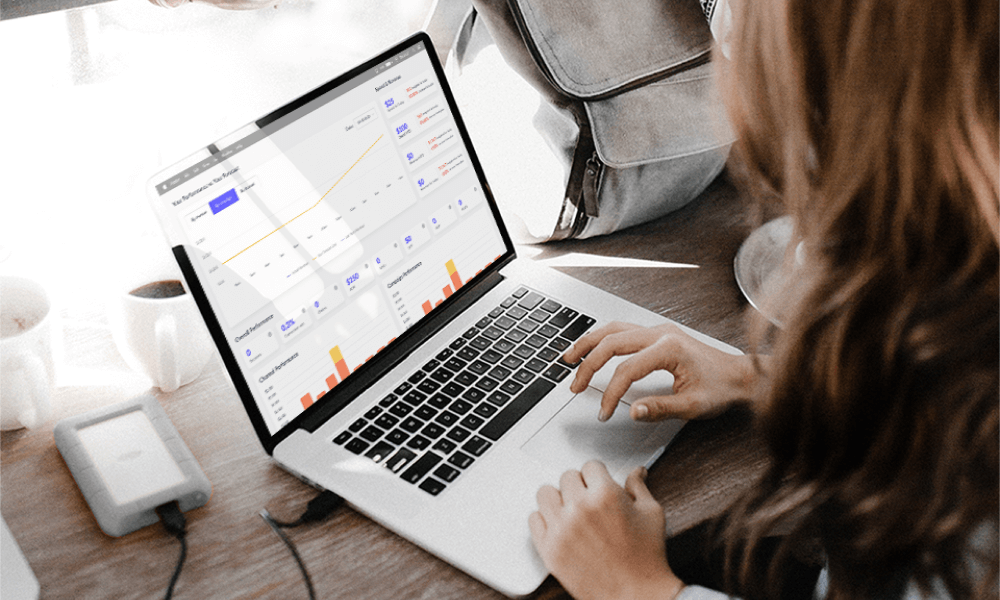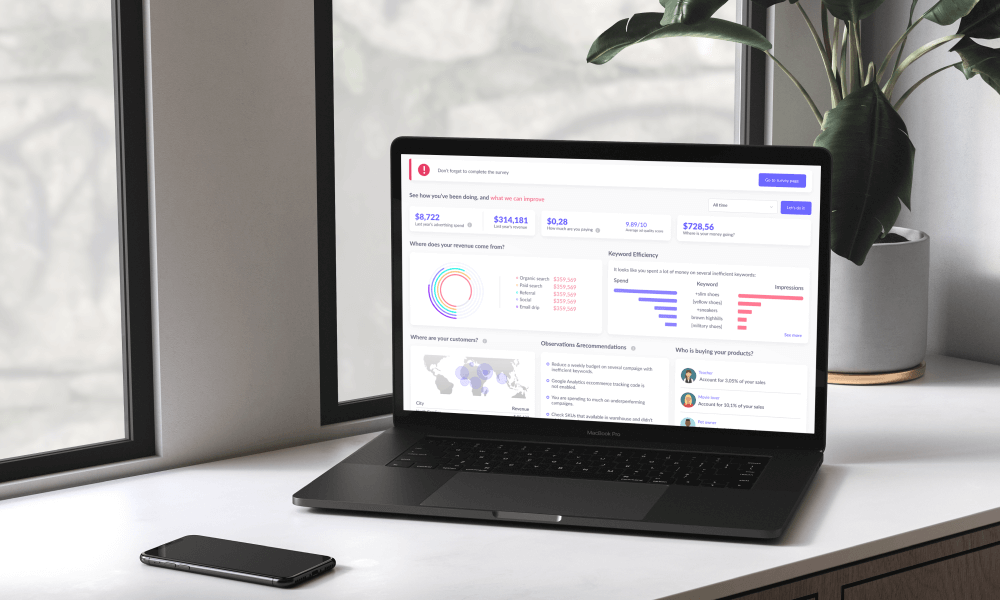Marketing Automation Campaign Management Platform
We delivered marketing automation software for Shopify providing multi-channel analytics and many settings.
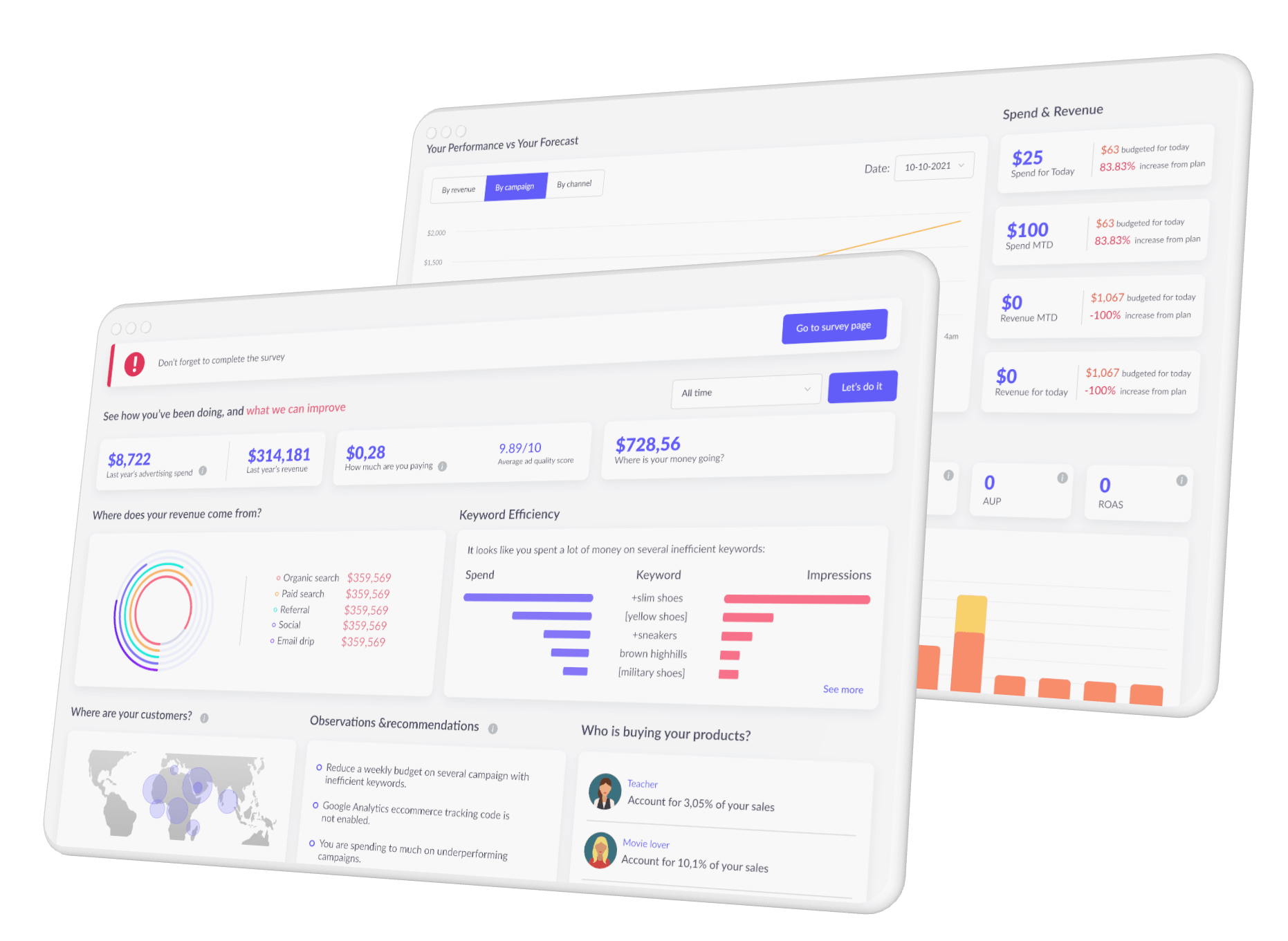
Client & Requirements
Our client, a US-based expert in marketing analytics, got in touch with our custom software development company as they were looking for an experienced team to take off their software project from scratch and equip it with a set of smart features. When they came to us, they only had the ambitious idea to create a multi-channel marketing automation app based on the Shopify platform.
The key aspect of this Shopify marketing automation software was to provide marketers and business owners with everything needed to set goals and budgets for their commercial campaigns. There are plenty of features such as plug-in acquisition channels, automated marketing operations, getting recommendations on improving customer involvement, and checking the current progress of every advertising campaign.
Challenges
The solution we provided to the client combined real-time marketing analytics with sales and traffic big data to set and launch suitable commercial campaigns, maximize profit, and boost customer acquisition for the app users.
Our challenge was to develop an app that combined real-time marketing analytics with Big Data on sales and traffic to set and launch the right commercial campaigns, maximize profit, and boost customer acquisition for the app users. As we created this marketing automation platform from scratch, to cope with the challenge efficiently, we needed to equip our solution with the following features:
- Providing secure registration and authentication forms with a role-based permissions model.
- Integrating Google Analytics and Google Ads APIs.
- Assuring proper collection and import data from Shopify about the number of orders, products, stock balances, as well as Google Ads & Google Analytics metrics for every registered user on the platform.
- Plugging and integrating Python-based module to analyze all gathered Big Data for every seller, store, and marketing campaign.
- Providing a set of tools to adjust marketing campaigns correctly and effectively.
- Creating a specific dashboard where users can see every current marketing campaign and its progress.
Solution
We started with developing secure registration and authorization forms for the app users to grant them full-fledged access to every feature of the final software solution.
Then we implemented a specific module based on the native APIs of Google Analytics and Google Ads systems to connect users’ Google accounts for further data collection and analysis via these systems.
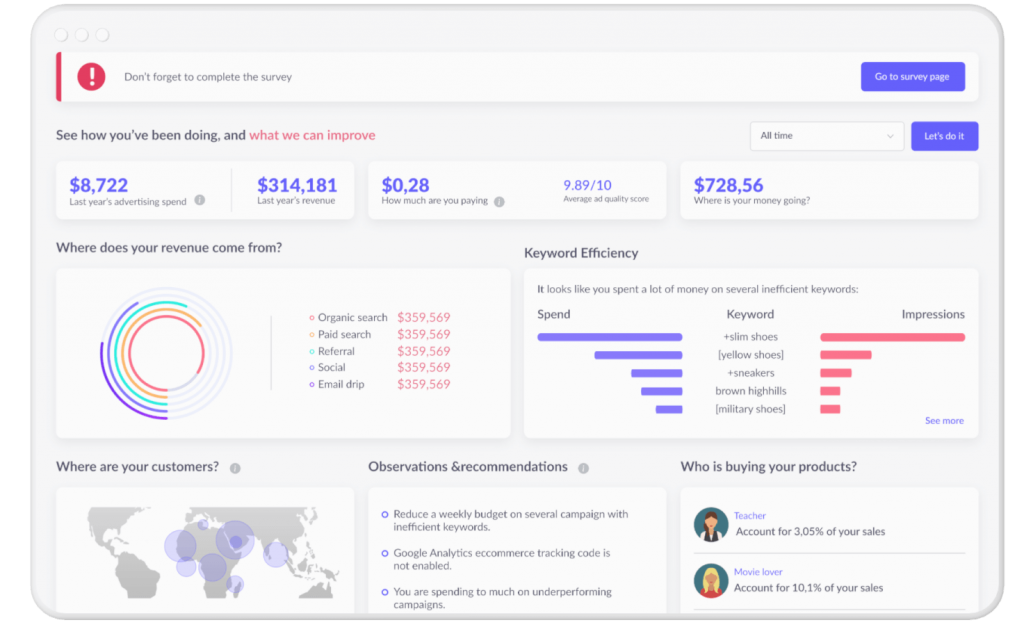
Dedicated to this project, our team developed a specific module to work with Big Data that helps import statistics from Shopify, such as the number of orders for each particular seller, sales volume, stock balances, and other parameters. The gathering of this data can be configured and performed for every seller who is registered on Shopify and has installed our app in the Shopify account.
Next, we integrated a Python module analyzing all the gathered data about sellers and stores and providing up-to-date information needed to create and launch advertising campaigns in Google Ads. Based on this analytical data, including cost per click, views, and clicks, our automated marketing platform gives its users tips & recommendations on how to set up Google Ads more efficiently.
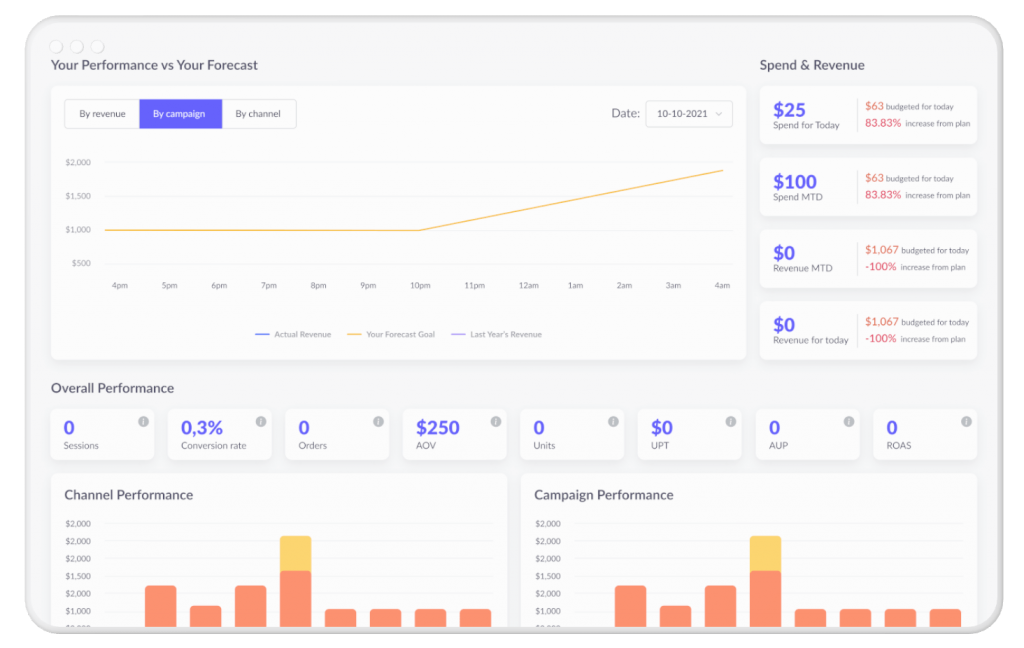
At the next stage of development, we provided an opportunity for marketers on the clients’ side to set up advertising campaigns based on pre-installed templates and supplement them manually in line with the data collected and analyzed by our Python module. As a result, the platform’s clients can launch full-fledged advertising campaigns using our app and its recommendations.
Based on the work of clients’ marketers, as well as data gathered and processed by our Python module, users get an initial estimate of the advertising campaign budget and approximate results to be expected from this campaign, such as audience reach, several clicks, prospects, sales, size revenue, etc. When launching an advertising campaign, the app users can choose its strategy from the following options: conservative, moderate, and aggressive. Thus, the last one focuses more on brand awareness and first-time visitors; the conservative strategy focuses more on returning customers making regular purchases, and the moderate — distributes the budget evenly among new, potential, and regular customers.
Our experts have developed a specific dashboard that gathers and displays data for each registered user, indicating the amounts already spent on previous advertising and marketing campaigns. On this dashboard, users can also see the progress of each running marketing campaign and check intermediate results, such as how much budget has been spent so far, how many ad impressions, how many buyers were attracted, etc.
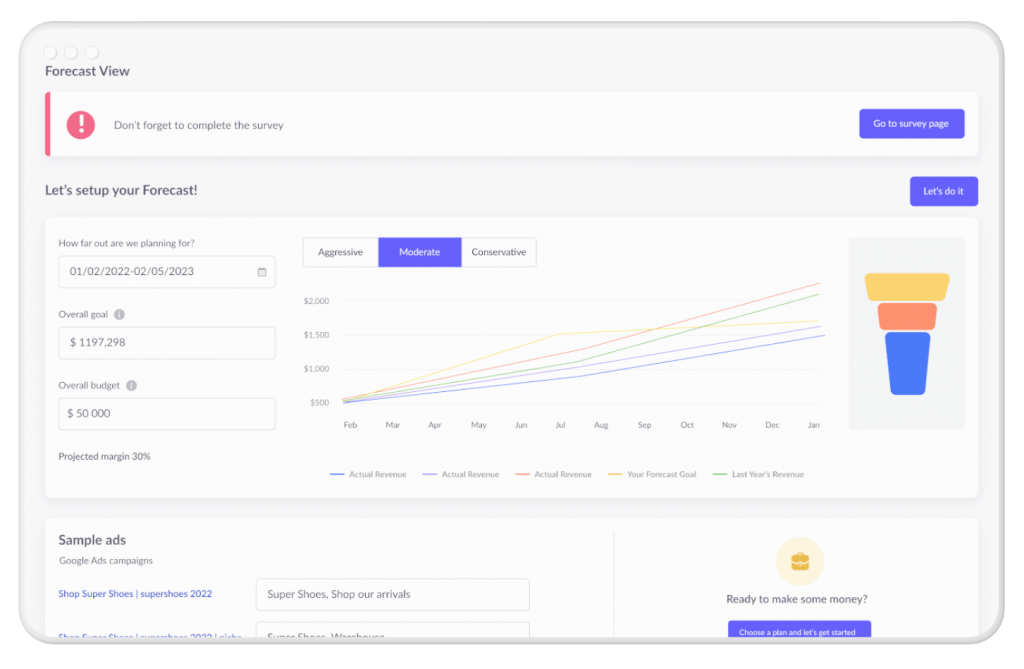
As an additional option, we’ve implemented the ability to log into one registered account of several user representatives. These can be the company’s marketers, sales managers, content managers, etc. Such users can also view all the gathered analytics and current advertising campaigns and edit them in line with the granted permissions.
Process
The development team for this Shopify marketing automation app was entirely on the Mbicycle side and included:
- Java TechLead
- Java Big Data engineer
- 3 Java developers
- 2 Python developers
- 2 QA engineers
- Business analyst
- Project manager
- 2 Frontend developers
We chose Agile as the main methodology for this project. The entire development process was divided into two-week sprints. We also held meetups two times a week within the team and two more times a week — with the client. Every sprint, we hosted a demo session for the client, and a few months from the start, we provided a full-fledged MVP.
Technologies & Tools
Core tech
Java, Python
Architecture
Microservice
Frontend
React, TypeScript
Third-party library APIs
AWS, HubSpot API, Shopify API, Google Analytics API, Google Ads API
Results
Our team has been working on this project for a year and two months. During this period, we successfully deployed our Java development services to implement all the initially planned functionality of the platform and put it into operation. Six months after the start of the project, the platform was already working in alpha testing mode, and after nine months, we released the application and made it available to real users.
The client was really satisfied with the results as the app has reached the expected number of monthly active users during the alpha testing period and increased significantly after the release. The solution has also received a positive response from ad-tech field influencers.
After implementing all the initially conceived functions, our client prolonged cooperation with Mbicycle to further improve their software solution. The next major extension we plan for this AI-powered marketing automation tool is its integration with Facebook Ads to launch and analyze advertising campaigns on this platform.



